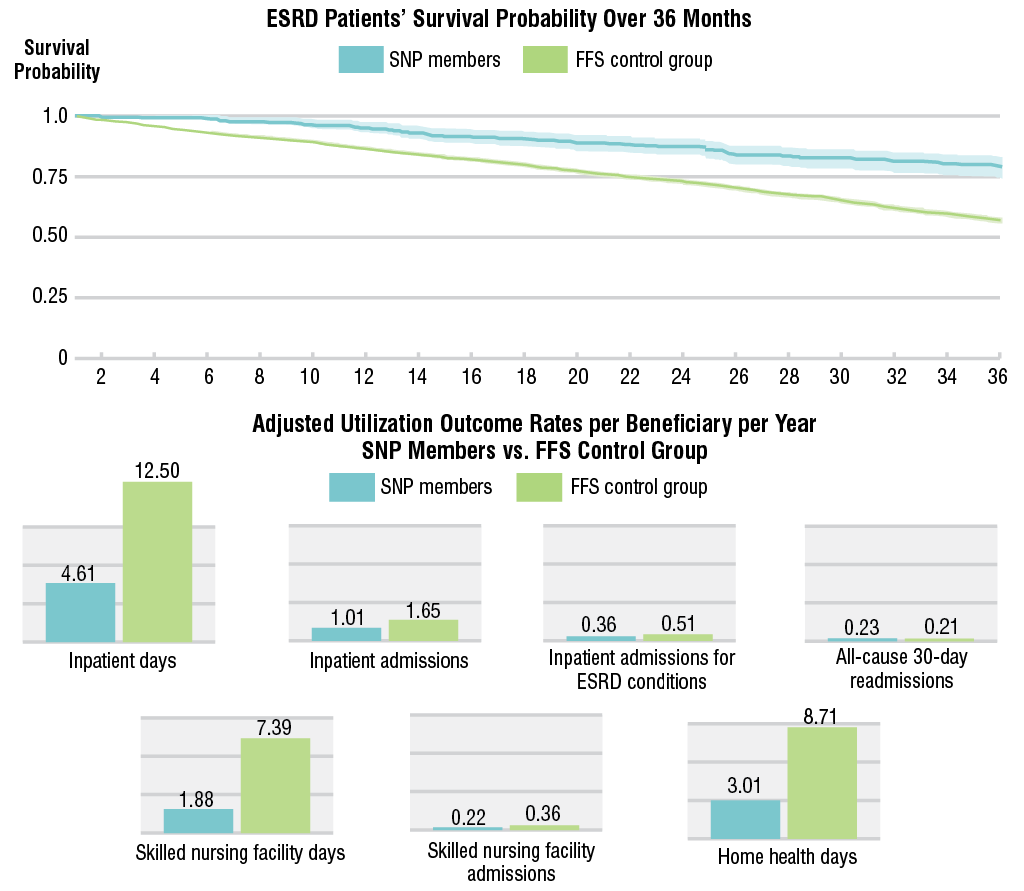SNP Enrollment Cuts Mortality, Utilization Rates for ESRD Patients
Medicare beneficiaries with end-stage renal disease (ESRD), a
costly and complex population that often has other comorbidities and sees
multiple physicians, may be better served in ESRD Special Needs Plans, a type
of Chronic-Condition SNP, posits a new study in Health Affairs. Researchers
studied members of Anthem, Inc.'s California-based CareMore Health ESRD SNPs
from 2010 to 2013, and found that those who switched from fee-for-service Medicare
to a CareMore SNP experienced reduced risk of death and overall lower health
care utilization compared to the FFS population. SNPs can coordinate member
care more closely, leading to improved adherence and better health outcomes,
which in turn reduces costs, asserted the study, which was supported by a grant
from the Anthem Public Policy Institute. The study authors — which included
employees of Humana Inc. and Anthem/CareMore — said that while additional
research is still needed, CMS could consider facilitating "the sharing of
best practices across SNPs and to other ESRD delivery and financing
models" as it considers new models of care, including the enrollment of
ESRD patients in traditional Medicare Advantage plans starting in 2021.

NOTES: Survival curves are unadjusted. The upper and lower ranges for each curve represent 95% confidence intervals.
SOURCE: "The Beneficial Effects of Medicare Advantage
Special Needs Plans for Patients With End-Stage Renal Disease," Health
Affairs, September 2020. View the full study here: https://www.healthaffairs.org/doi/abs/10.1377/hlthaff.2019.01793.
© 2020 Project HOPE—The People-to-People Health Foundation, Inc.
No comments:
Post a Comment